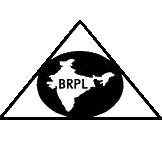Bengaluru, April 5, 2025 – In an exclusive conversation on the People by WTF podcast, New Zealand Prime Minister Christopher Luxon sits down with Indian investor and entrepreneur, Nikhil Kamath, to discuss leadership, the challenges of transitioning from business to politics, global economic shifts, and why Indian entrepreneurs should consider New Zealand as their next business destination.
This podcast is a great watch for entrepreneurs looking for global opportunities, corporate leaders eyeing a bigger impact, aspiring politicians eager to make a difference, or simply someone fascinated by the crossover between business and governance. The episode is packed with game-changing insights on leadership, adaptability, and seizing global opportunities in an evolving world.
Key Takeaways from the episode include:
1. PM Christopher Luxon: Identity Beyond Job Titles: Kicking off the conversation, Nikhil Kamath references PM Luxon’s social media bio, which reads: “First a husband, then a father, then a brother, then a son, and then New Zealand Prime Minister.” and asks if this truly reflect how he views life and leadership?
This sets the stage for PM Luxon to share his core belief – who you are defines you more than any title. He recalls meeting his wife at 15, building a family while navigating a global career, and how staying true to his values has shaped his leadership. PM Luxon’s shares, “Who you are and the relationships that you have is what life’s ultimately all about. If you put all of your identity into a title and into some perceived status, that will come and go. At some point, I will no longer be Prime Minister of New Zealand, and I absolutely love this job, but I’m not defined by the job.”
2. The Political Playbook for CEOs: What Business Leaders Must Unlearn: With more business leaders contemplating a shift into politics, Nikhil Kamath questions why so many struggle to adapt and asks PM Luxon what key skills are essential for success in government. PM Luxon breaks down the real skills needed in politics – strong character, emotional intelligence, strategic communication, and resilience under pressure. He highlights the importance of managing criticism, shaping public perception, and, above all, influencing and uniting people to drive real change.
PM Luxon shares, “The skill is in managing expectations while staying true to your principles. Make sure you stimulate and provoke change on new things that will actually move the agenda forward, move a country, or move an organisation forward. Be humble and learn what you need to know in order to help you move forward in your political career. Character really matters, focus on learning and be curious, the rest takes care of itself.
3. The Role of New Zealand in the Global Economy: Turning the conversation towards business, Nikhil asks PM Luxon about the opportunities for Indian entrepreneurs looking to expand globally. PM Luxon makes a strong pitch for Indian entrepreneurs to consider business expansion to New Zealand, emphasizing the country’s pro-business environment and global market access, and the government’s Active Investor Visa that allows foreign nationals and investors to gain residency within three years by investing NZ$5 million in high-growth industries.
PM Luxon highlights, “We need to attract more foreign investment. But more than just capital, we need knowledge, skills, and global networks. We’ve just launched the Active Investor Visa, which offers a pathway to residency in three years. This is a great opportunity to get that connectivity in New Zealand. We are very engaged in the world, despite our remoteness at times or our geography.”
4. From Boardrooms to Ballots: The Skills Business Leaders Lack in Politics: Nikhil sparks a conversation on entrepreneurs entering politics, expressing that while he has no such ambitions, he hopes that more business leaders, especially in India, will take on governance roles. PM Luxon draws a sharp contrast between running a company and leading a country – political challenges are complex, nuanced, and demand more than just a results-driven approach. Success in politics, he explains, hinges on mastering policy, navigating parliamentary processes, and staying deeply connected to the people. He likens the transition to switching from cricket to hockey—new rules, new skills, and a whole new game.
He explains, “Politics is the people business. In business, you answer to shareholders. You have to be prepared to unlearn things that may have made you successful in one job or career and embrace new ways of thinking. Governments often don’t define problems well, which is why solutions tend to roam around, searching for the right issue to attach to. The key is starting from the ground up, mastering policy, understanding how parliament functions, staying connected to your party, and, most importantly, delivering real results for people.”
5. What’s wrong with the world today?: PM Luxon discusses the shifting global order, the move from efficiency to resilience, and why economic security is now a top priority. He also shares why young people should engage more in shaping their future. He highlights: “The world order is shifting. We are moving from a world focused on efficiency to one focused on resilience. We need to focus on resilience, not just efficiency, and ensure that security and economic prosperity go hand in hand. Governments now realize that prosperity depends on security, and that means thinking beyond short-term cost savings.”
6. Will the Next Generation shape a better future? Despite global challenges, PM Luxon remains optimistic about the future, believing that young leaders today are more collaborative, forward-thinking, and open-minded than previous generations. He says, “I actually think the world is in good hands. The next generation is more collaborative, less prejudiced, and eager to create change. If you don’t like the system, don’t complain—engage, get involved, and make it better.”
Access the whole podcast here: https://www.youtube.com/watch?v=tlicx3KKzmQ
 Newspatrolling.com News cum Content Syndication Portal Online
Newspatrolling.com News cum Content Syndication Portal Online






